April 18, 2025 | 01:50 GMT +7
April 18, 2025 | 01:50 GMT +7
Hotline: 0913.378.918
April 18, 2025 | 01:50 GMT +7
Hotline: 0913.378.918
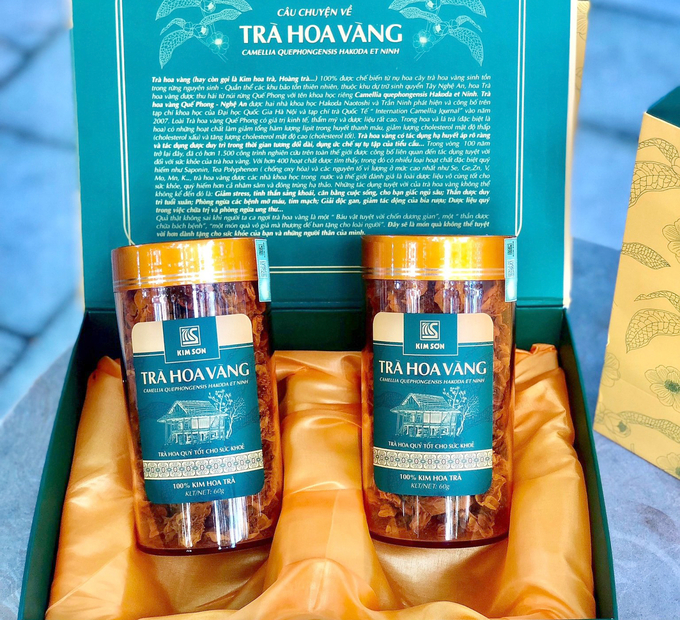
Some of Nghe An's medicinal product lines are marked by guaranteed quality and eye-catching presentation.
Nghe An province has a diverse topography and rich forest resources. The topography is inclined to the Northwest - Southeast, the highest peak is Puxalaileng (2,711m) in Ky Son, and the lowest is the alluvial plains Quynh Luu, Dien Chau, and Yen Thanh.
From such distribution conditions, Nghe An has nearly 1,000 medicinal herbs, including many rare species with high economic value, such as Puxailaileng Ginseng, red mulberry, dandelion ginseng, pine conifer, and white-striped chestnut, jade bamboo, jade...
Up to now, Nghe An has attracted some businesses of the same caliber with the same goal and determination to "explore and elevate" this unique product line. Nafoods Group can be mentioned when investing and producing products from passion fruit in Que Phong, Tuong Duong and Yen Thanh districts; Tan Thang Gac Joint Stock Company grows and processes Gac products in Quynh Luu; Muong Long Pharmaceutical Joint Stock Company (belonging to TH Group) invests in planting and preliminary processing clean medicinal herbs in Muong Long commune, Ky Son district. Puxailaileng, red umbrella, seven leaves and one flower…
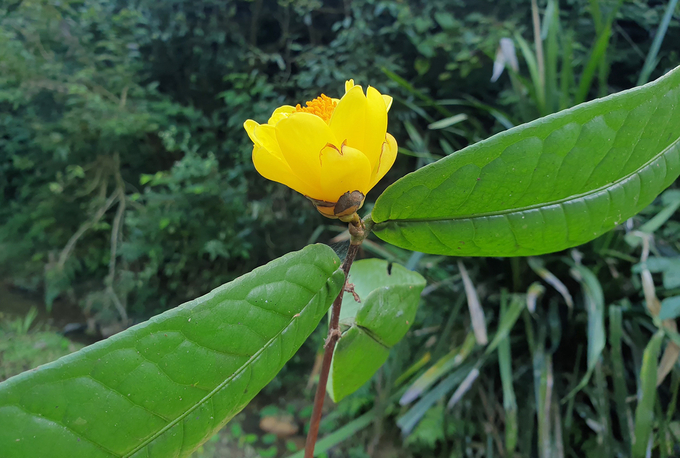
Nghe An is a province with the strength to develop medicinal herbals.
According to experts, Vietnam's medicinal herbs have prospered recently. However, the results are still quite limited compared with the potential and advantages.
Vietnam's main medicinal herb export markets are mainly Africa, Russia and some neighboring countries. Vietnam with over 90 million people. Nghe An province possesses vast forest resources that need to urgently remove bottlenecks, thereby creating momentum to bring the line of medicinal products to other markets.
To concretize the target, Nghe An must develop a long-term roadmap suitable to the general conditions and situation, taking into account the option of "developing medicinal herbs in the context of climate change." It is not redundant because, through the assessment, within the next 50 years, Nghe An and the entire North Central region will significantly impact many aspects.
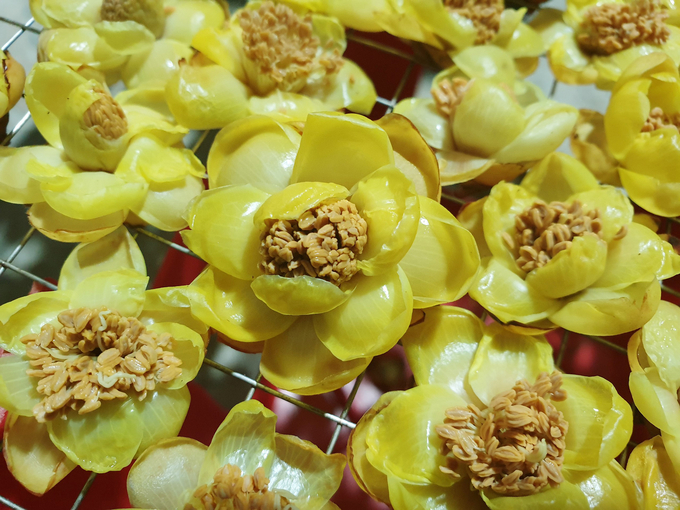
Wide variety of medicinal herb products.
The view of planning for the conservation and development of medicinal herbs of Nghe An is based on the guidelines and policies of the Party and the State (Decision No. 1976/QD-TTg dated October 30, 2013, of the Prime Minister approving the regulation master plan on development of medicinal herbs to 2020, orientation to 2030). In that spirit, we will focus on commodity-oriented, stable, long-term development with large-scale, concentrated and specialized cultivation. The planning areas must be consistent with the orientation of socio-economic development, agricultural production, and other relevant specialized planning.
The planning work must be associated with the task of improving the role of state management in the process of supporting investment in science and technology to improve productivity and product quality gradually.
The implementation process must create a close association of "4 houses", which is considered a prerequisite to creating a healthy and favorable market for medicinal plants and encourages all economic sectors to invest, ensuring raw materials are large enough to serve domestic demand and towards export.
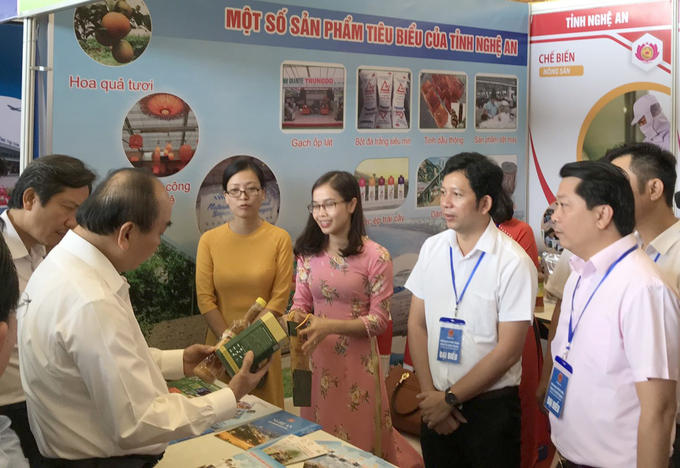
Nghe An needs to remove difficulties to boost medicinal herbal products for export.
From 2021 through 2030, Nghe An strives to achieve 32,710 tons of medicinal products.
According to World Health Organization (WHO) statistics, for about 80% of the population in developing countries, health care is more or less related to traditional medicine or traditional herbal medicine. With economic growth, income, and living standards improved, using products of natural origin is a common trend worldwide.
Despite the potential for development in Vietnam, the domestic source of medicinal herbs only meets about 30% of the processing demand. The rest must be imported from China, Taiwan, and Singapore (mainly grown medicinal plants). Meanwhile, Vietnam exports primarily natural and organic medicinal materials (considered of high economic and medicinal value), which is also an advantage in bringing Vietnamese medicinal products to the market. South to fastidious markets such as Japan and Europe.
The domestic demand for medicinal herbs and products has gradually increased in recent years and is expected to continue to grow in the following years. Especially in the context of the Covid-19 epidemic, consumers tend to pay more attention to natural healthcare products.
Translated by Ha Phuc

(VAN) With an annual production scale of around 5 million tons, Vietnam has enough potential to transform rice bran into a key export commodity if combined with deep processing.
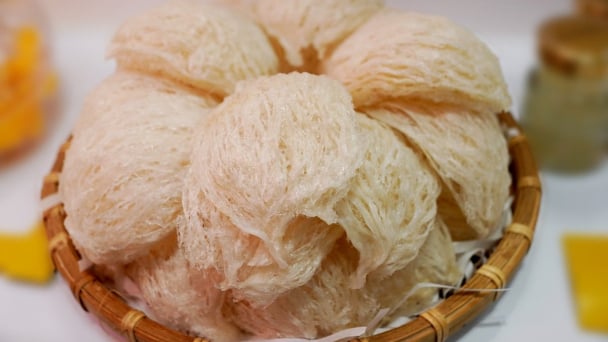
(VAN) As the world’s largest consumer of bird’s nest products, China is gradually becoming a 'golden' market for Vietnamese bird’s nests.
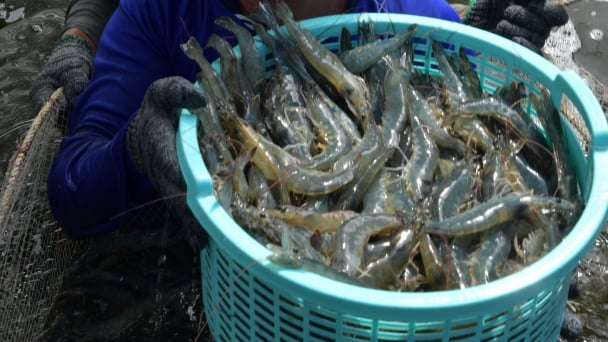
(VAN) Deputy Minister Phung Duc Tien has directed the fishery sector to diversify its farming objectives during the conference reviewing Q1 performance and outlining tasks for April and Q2/2025.

(VAN) Consumption and production falls in almost every market as industry fears a ‘generational’ change in drinking habits.
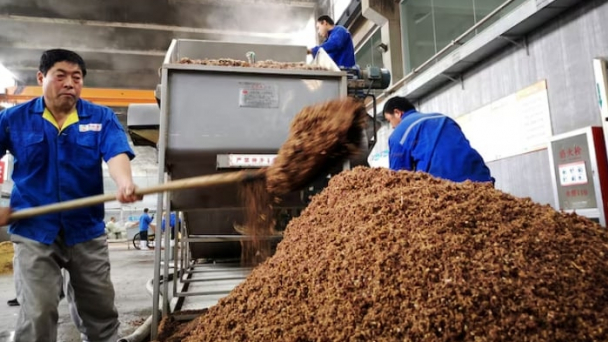
(VAN) U.S. President Donald Trump's trade war with China comes at a bad time for sorghum growers like Dan Atkisson in Kansas, who is nevertheless preparing to increase plantings by 25% this spring.
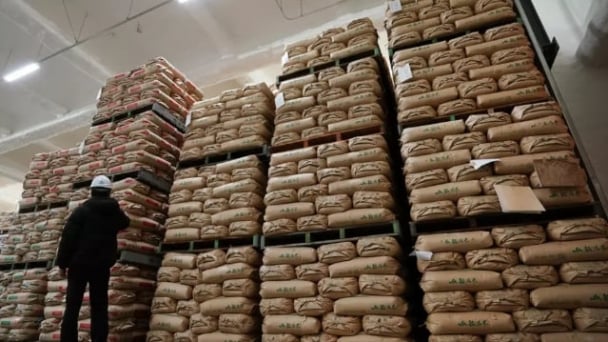
(VAN) Japan will sell more rice from its emergency stockpile through July in an attempt to stabilise soaring prices, the agricultural minister said.

(VAN) The Philippines is making efforts to diversify its rice import sources in order to reduce its dependence on Vietnamese rice. However, Vietnamese rice has managed to maintain its strong position in this market.